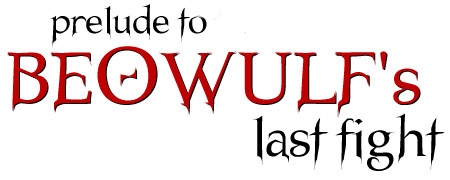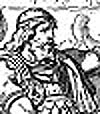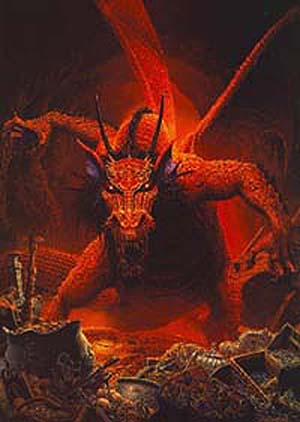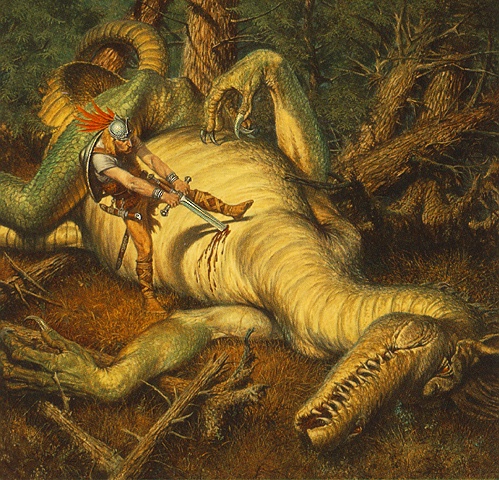 
Parallel to this speech is the ubi sunt passage from Old English poem "The Wanderer." The old warrior, the wanderer or, as the poet calls him, "the earth-walker," who has lost his comrades in the battles, talks about the loneliness of exile and the aimlessness of war:
The Last Survivor's Speech has ideas similar to those found in the ubi sunt passage in "The Wanderer": life is short; it will end in the endless winter; joy and pleasure are impermanent; fate rules all things; and in the end, the warrior is left alone to await his death.
The same mood can be felt in the final scenes of Beowulf that portray the king preparing to fight the dragon. Beowulf goes to the dragon's barrow with his men, but he fights alone and faces his enormous final challenge while the reader suspects that this battle is going to be the hero's last one: "The beginning was terrible to the folk on the land, as the ending was soon to be sore to their giver of treasure." (Norton, 57) Nevertheless, the king of the Geats goes out to punish the worm. Being aware of the dragon's strength and knowing that a wooden shield is not going to protect him, Beowulf has a shield of steel made for him. He is ready to die, but he acts according to the heroic code: it is better to die on a battlefield than live in shame: "Thus he had survived every combat, every dangerous battle, every deed of courage, the son of the Ecgtheow, until that one day when he should fight with the worm" (Norton, 58).
Beowulf's speech before the battle reflects the ideas previously expressed in the ubi sunt passage in "The Wanderer" and The Last Survivor's Speech. He recalls past actions and wonders about the great times of battles and celebrations, but now "shall the sword's edge, the hand and hard blade, fight for the hoard."(Norton, 59) Later, Beowulf does defeat the dragon after the long exhausting battle, but the hero is mortally wounded himself. Dying, he gives a speech which "consists of a disappointed hope about the future, a statement of past achievement, and a last dying act in the present"(Irving, 231). Beowulf is happy to die if his death brings peace to his people. Yet he leaves them a treasure that now belongs to the Geats, hoping that it will help them prosper in the future, but the Geats bury the treasure with their king.
|


